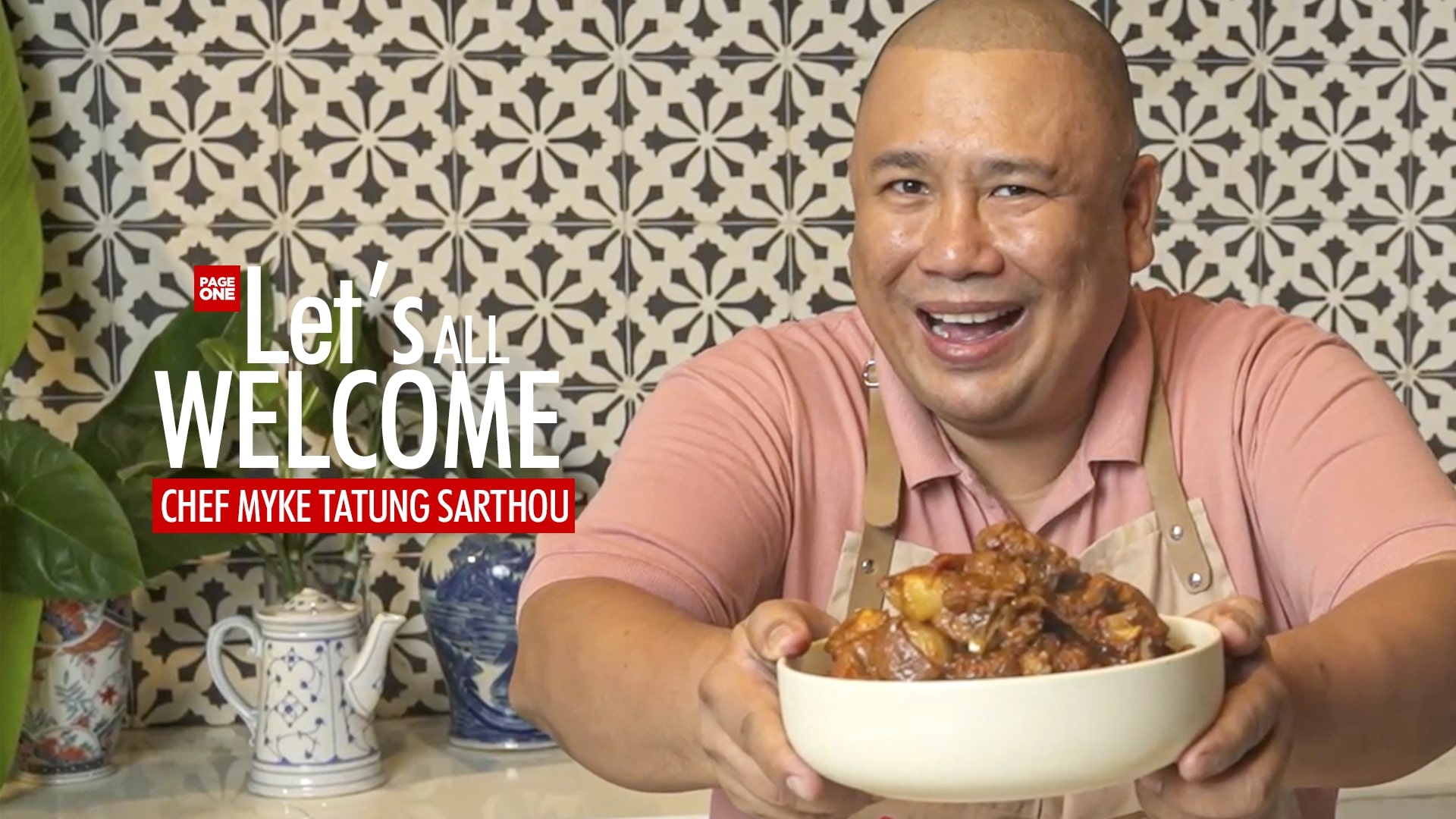When Chef Myke “Tatung” Sarthou started his career, “molecular gastronomy” was on the rise. It’s a culinary movement in which science is placed at the core of preparing, transforming, and presenting food, led by Spain’s iconic restaurant El Bulli. With this progressive approach in mind, he experimented with various cuisines, particularly from the West, but, at the end of the day, he realized that the cuisine most deserving of his innovation and mastery was that of his home country.
Chef Tatung likened this realization to Filipinos craving Adobo, Sinigang, Afritada, or any Pinoy favorite when they get home, famished from their jobs or errands. “I realized that no matter how fancy or how ambitious or how highbrow you try to create stuff, you always go back to what soothes your soul. You always go back to what truly makes you happy,” he said.
We tend to gravitate toward familiar things for the comfort and stability they provide. Naturally, Filipinos return to dishes that have always been their home and part of their identity. An Adobo recipe passed down through each generation is susceptible to change, but no matter what transformation it might go through, it will always remain the Adobo we know. And the same goes for other beloved Pinoy dishes—they are the same dishes we’ve always loved and the ones we’ll always return to.
At the heart of it all, a nation’s cuisine has a deep, interlocked connection to culture, and for Chef Tatung, simplicity is the lens through which we behold and preserve this “taste of home” that has been laid down before us.
What’s considered authentic?
When asked about the concept of authenticity in Filipino cuisine, Chef Tatung answered it with a challenging question. “When you talk of authenticity, it’s a very polarizing term right now [because it’s like asking] what is truly authentic, right? That when one adopts a more progressive, more economical, or more practical way of doing things, would it be acceptable?”
We’ve tasted and seen many Filipino dishes that are “reimagined” by chefs and homemakers, and most of the time, it’s simply a mere experiment. But for those who choose to replicate or embrace these versions, the term “authentic” begins to lose its meaning or become unclear.
“I think the best example would be the kare-kare. Do you still consider it authentic if one substitutes peanut butter from using the original crushed peanuts?” Chef Tatung said.

By cooking according to his “simpol” philosophy—which is preparing Filipino food that is simple, replicable, and made in households—Chef Tatung acknowledges that authenticity might sometimes be compromised but, “as long as the end product resembles the original and the intention is there,” the dish becomes authentic.
Cuisines will continue to evolve gradually, but we should embrace these slight gastronomical changes because, after all, they are not only part of the food’s identity but also of who we are—our values, beliefs, adopted norms, and customs—as time goes by.
“I think simplicity allows cultures to continue to perpetuate. It allows cultures to continue to be part of our daily lives. Or else it will render itself obsolete. So, for me, simplicity is like a movement for keeping Filipino culture and cuisine relevant through the ages.”
For Chef Tatung, the key to recreating a traditional recipe in modern Filipino households is being able to eat “in a manner that is accessible and simple enough for them to do on a daily basis.”
Cooking for the Filipino people
At the core of Chef Tatung’s “simpol” is the Filipino people. He was greatly influenced by the mothers in his family, and now he’s doing the same thing in this generation: inspiring and influencing Filipinos to nurture their love for cooking and make things simple, from preparing the ingredients to eating with their loved ones.
“My approach in doing Filipino recipes is really to think of the Filipino household,” Chef Tatung said, “I think what people love about [Simpol.ph is] when I share recipes, [you probably have the ingredients at home, right?] It’s cooking with what is readily available. So, when you cook my recipes, you don’t usually have to go to a specialty store. You don’t have to go out to the grocery.”

Reminiscing about his childhood, Chef Tatung recalled the abundance of coconuts in their home in Visayas, where the practice of using locally sourced and readily available ingredients shaped the person he is today.
“For me, simplicity is also food and ingredients that are accessible to everyone. [Whether you go to a wet market, bazaar, or supermarket, these ingredients are available]. If people try to make do with what they have and what is accessible to them, they do not deserve to be belittled or insulted,” Chef Tatung said, teaching us that a good, healthy meal is not defined by fancy ingredients or expensive equipment but by the simple desire of our hearts.
Even before he began his career, Chef Tatung’s “simpol” philosophy has always championed the Filipino experience. It’s a celebration of love, familiarity, and one’s culture and identity. “It’s really about food security. It’s really about making sure that my fellow Filipinos eat well at home, eat well within their own communities, in their own lives.”








